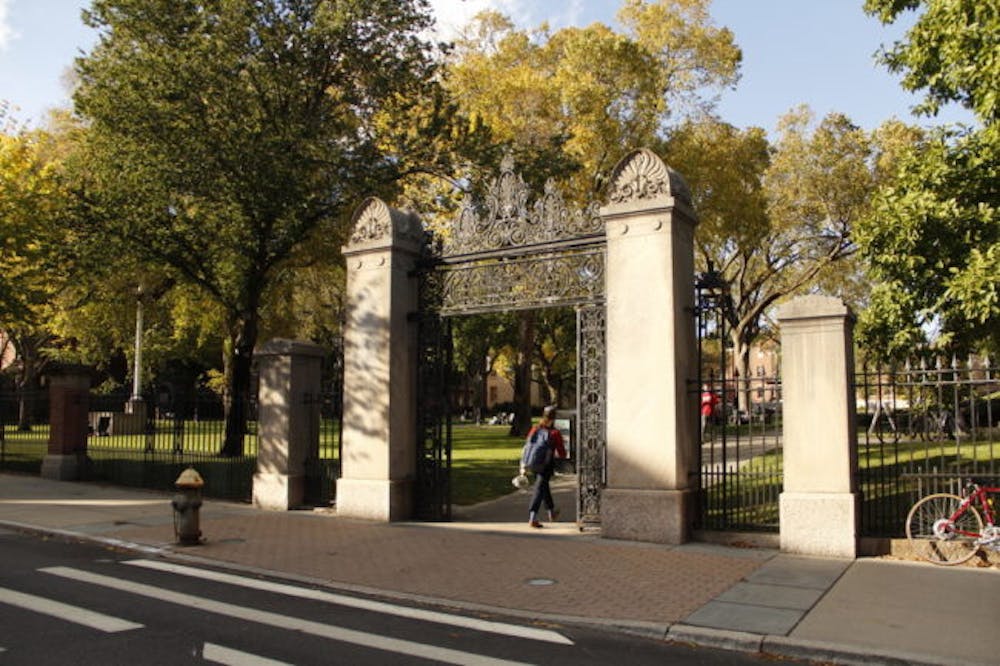The University expects to return to a two-semester system where all undergraduate, graduate and medical students will be brought back to campus to take classes and conduct research in person for the 2021-22 academic year, according to a Monday Today@Brown announcement from Provost Richard Locke P’18 and Executive Vice President for Finance and Administration Barbara Chernow.
While the University plans for mostly in-person activities in the next academic year, the rest of the current spring semester and subsequent summer term will continue in their “current hybrid mode.” The 2021 Wintersession is slated to be fully online.
Despite plans to return to mostly in-person learning for the 2021-22 academic year, the University is requesting that faculty “prepare to make all course materials available online or in hybrid format” for those who will not be able to attend in-person courses because of “health concerns, travel restrictions or other hardships.”
Students will be able to apply to study remotely “should circumstances warrant it,” according to the announcement, and there will be an additional process in place “for faculty, teaching assistants and instructors to request the option of teaching and engaging remotely due to health concerns or other personal circumstances.”
The six-semester housing requirement for undergraduate students will also be reinstated in the 2021-22 academic year, according to the communitywide notice.
These plans rest on the assumption that there will be “widespread access to effective COVID-19 vaccines in the U.S. prior to the next academic year,” Locke and Chernow wrote.
Students living on-campus for this spring will be able to return home after April 8 as they prepare for the remote reading period and final exams. Residence halls and Brown-leased off-campus housing will close April 24 for the spring semester. Only graduating seniors, who will be participating in graduation ceremonies, and students with permission will remain in Brown housing beyond April 24.
Among students with special housing permission will be undergraduate students who cannot travel, who will be provided on-campus housing, according to the notice.
For the summer 2021 term, the University expects around 2,500 undergraduates and 350 medical students will be allowed back on campus, along with graduate students primarily working in research labs.
The summer session will begin with the opening of residence halls, and the move-in days constituting the start of Quiet Period will take place from May 9 to 11. Classes will start May 12 and end July 30. Remote final exams will be given from Aug. 9 to 13.
Student housing will remain single occupancy for Brown-owned and Brown-leased properties over the summer and communal kitchens will remain closed until permitted to reopen by public health conditions. Brown dining halls will keep the “grab and go” format until otherwise permitted.
The COVID-19 testing program for students, faculty and staff will continue in the summer, as will all health protocols from the fall 2020 and spring 2021 semesters, such as social distancing, frequent hand-washing and mask-wearing.
Students, teaching assistants and faculty will retain the option to learn and teach remotely during the summer semester. But international students who entered the United States after March 9, 2020 on F-1 visas, as well as F-1 visa transfer students, are “required to take at least one in-person or hybrid course and attend the in-person components throughout the entire term,” according to the announcement.
230 courses are currently being offered for the summer semester, with 55 percent taking place online and 45 percent in a hybrid format, allowing for some portion of the class to be conducted in person in groups of 19 or fewer students.
Visitor restrictions, research protocols and restrictions on international and domestic travel will remain for the summer 2021 semester until further notice. Members of the Brown community “can request exemptions for essential travel.”
The University will also be hosting in-person Summer Pre-College Programs, according to the announcement, although the programs will be smaller than in past years and will feature “highly structured schedules.”
The University has also convened a steering committee to study how lessons from the last year can be applied to future hybrid and remote work opportunities for faculty.

ADVERTISEMENT




